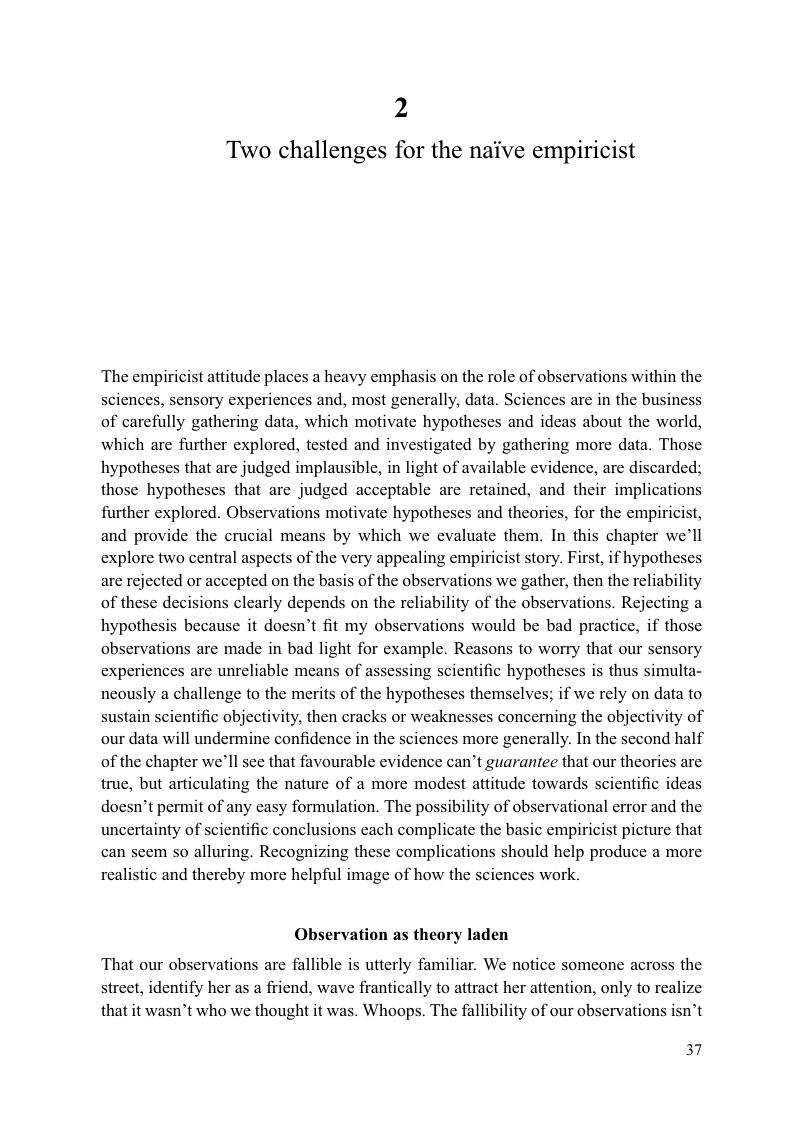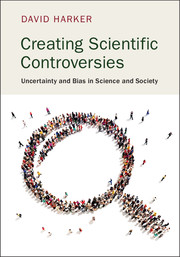Book contents
- Frontmatter
- Dedication
- Contents
- Preface
- Introduction: scientific authority and the created controversy
- Part I Lessons from the Philosophy of Science
- 1 Defining science and the empiricist approach
- 2 Two challenges for the naïve empiricist
- 3 A revolution in how we think about sciences
- 4 Sciences as historically and socially situated
- Points to remember: Part I
- Part II Biases, Arguments and Created Controversies
- Part III Exposing Created Controversies
- Concluding remarks
- References
- Index
2 - Two challenges for the naïve empiricist
from Part I - Lessons from the Philosophy of Science
Published online by Cambridge University Press: 05 October 2015
- Frontmatter
- Dedication
- Contents
- Preface
- Introduction: scientific authority and the created controversy
- Part I Lessons from the Philosophy of Science
- 1 Defining science and the empiricist approach
- 2 Two challenges for the naïve empiricist
- 3 A revolution in how we think about sciences
- 4 Sciences as historically and socially situated
- Points to remember: Part I
- Part II Biases, Arguments and Created Controversies
- Part III Exposing Created Controversies
- Concluding remarks
- References
- Index
Summary

- Type
- Chapter
- Information
- Creating Scientific ControversiesUncertainty and Bias in Science and Society, pp. 37 - 59Publisher: Cambridge University PressPrint publication year: 2015

